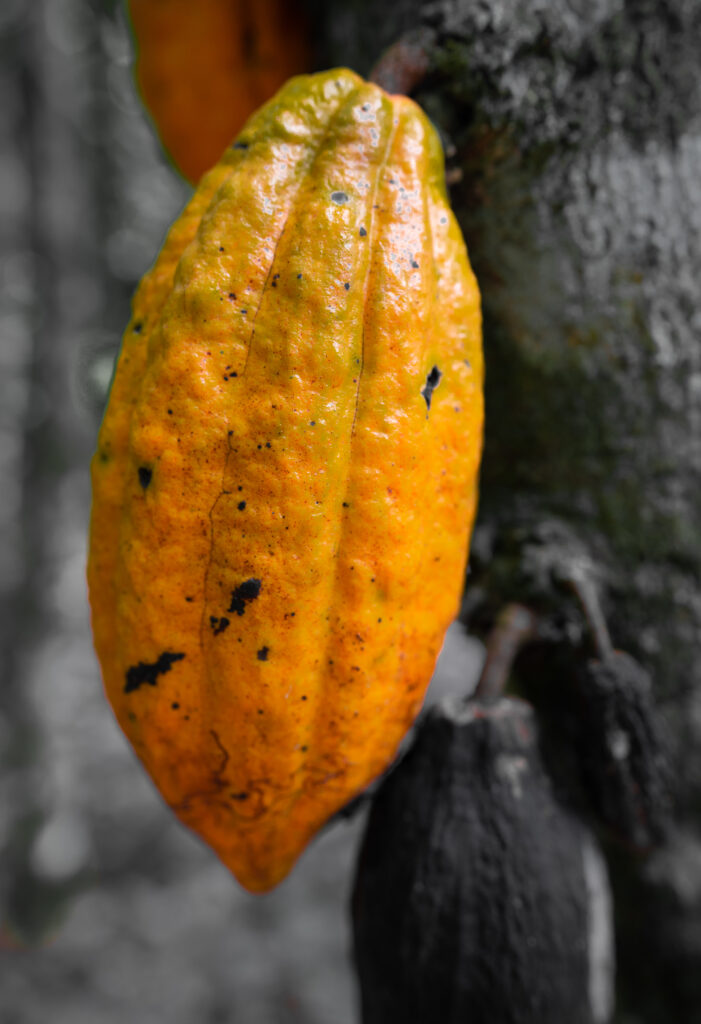The Cocoa Trap
In May’s edition of 2P University, we brought up the importance of jobs. It is amazing how much jobs define us and the percentage of our lives that are caught up in our careers. This is similar in many parts of Ghana, with the exception that most people feel that they have little option in the profession they end up in. About 44% of Ghanaians earn their income from agriculture. In Akim Kwameng, that career is in cocoa. Yes, the stuff that makes chocolate.
The Portuguese brought cocoa to the African continent in the early 1800s. As demand for chocolate increased throughout the world, larger plantations began to be established and the business was a guaranteed source of income. It was a highly lucrative venture. Families in Africa dedicated all available land to this valuable crop. As time passed and one generation passed their land down to the next, the cocoa farms became smaller. If you had six children and divided the land between them, the outcome was not in the favor of the children. Most cocoa farmers in Akim Kwameng have only a couple of acres of cocoa and have no room to expand. Not only that, cocoa needs to be cared for and the trees kept free from insects and disease. They need to be sprayed three times a year and the harvest is labor-intensive. The price of cocoa is established by the government. While this prevents farmers from getting exceptionally low rates for their harvest, it also means that they don’t have hope of rising out of poverty. The average farmer in Akim Kwameng makes between $400-$500 US each year from their harvest. This, along with the small vegetable gardens that they plant allows them to survive – but not thrive. Life is a struggle. Their once-lucrative cocoa farms have become a trap. They don’t feel they can risk cutting the trees down (they would need government permission to do so anyway) because they rely on the small income they get. What would happen if they tried to do something different with their land? What if it didn’t work?
Here in the United States, risk-takers are celebrated. We hear stories of how someone quit their job and started a whole new career. We honor it as courageous, but what if there wasn’t a safety net? What if failure meant that your children went hungry? What if it meant that you couldn’t get medical care? What if there wasn’t unemployment benefits, welfare, and even shelters for homelessness? What if you were unable to get a loan of less than 35% (the going rate in Ghana)? A risk with your cocoa farm in rural Ghana can literally mean the difference between life and death. If you were in similar circumstances, what would you do?
Here in the United States, risk-takers are celebrated. We hear stories of how someone quit their job and started a whole new career. We honor it as courageous, but what if there wasn’t a safety net? What if failure meant that your children went hungry? What if it meant that you couldn’t get medical care? What if there weren’t unemployment benefits, welfare, and even shelters for homelessness? What if you were unable to get a loan of less than 35% (the going rate in Ghana)? A risk with your cocoa farm in rural Ghana can literally mean the difference between life and death. If you were in similar circumstances, what would you do?
Two Pennies Ministry is a 501(c)3 charity, EIN 83-3269475. We can be found at 1735 W Highland Ave, Elgin, IL.


